‘What is wrong with this?’ Brown challenged over bilingual road signs
National’s transport spokesperson Simeon Brown has been shown a road sign in te reo Māori and English and asked for his thoughts on it.
It comes after Brown last week said his party did not support having road signs in both te reo Māori and English, saying it would be confusing for drivers.
Are we really arguing about road signs in Māori?
What planet is this mere expression of bilingual culture sooooooooooooooo triggering that we are actually ripping off the pus infested crust of toxic racism that oozes out whenever societal pressure pops the pimple of bigotry in this country?
FFS folks, we have way bigger fish to fry than bloody basic bilingual road signs!
Equally however, the growing resentment of Te Reo is partly driven by the eye rolling Outrage Olympics played out in NZ by the woke if anyone says anything other than gushing praise of Te Reo.
The issue is that the Māori is first, not that there is Māori on it, and that is a legitimate complaint. It’s the EXACT same issue with the brown washing of Government Agencies, no one knows what those Agencies are.
The Woke will scream Māori has to be first you racist, so it’s not really about a recognition or celebration of the indigenous language, it’s force feeding it down our throats and that is insulting and stupid because Te Reo is a cultural gift, not a new woke virtue signalling cudgel!
When I was 18 I had a car accident that left me with a serious head injury that damaged the part of my brain where I formulate speech and language.
Sometimes, without realising it, I mangle my pronunciation horribly.
I’ve always been a tad self-conscious about it and that’s why I don’t try to pronounce Te Reo because I fear some pronunciation policing woke fascist will jump on my mispronunciation and scream I’m being racist for mispronouncing the language and lead some new crusade to get my cancelled – and I just don’t have the energy for any of that!
I get cancelled monthly as it is, I don’t need another bloody target on my back!
My repertoire of Te Reo is pure pidgin Māori – Kia ora, Kai pai and Kia Kaha, but I do use those many times a day as my basic go to for greeting anyone.
My tongue is simply too leaden for the beauty of a cultural treasure like Te Reo, and while I can’t speak it, I certainly believed it was my daughters birth right to enjoy this gift, so she has been in a bilingual class all her life (currently she is the only pakeha in her class which is a tragedy in of itself) and I have to tell you that when she speaks Te Reo it melts my black cynical heart and makes me feel more connected as a New Zealander than any other single thing.
To me, Te Reo is a cultural treasure that is a gift, and I think the recent friction over Te Reo is because it isn’t being given as gift, and instead has become a virtue signalling cudgel used by the Professional Managerial Class akin to their aggressive pronoun peacocking that is being used as an elitism rather than a cultural gift.
You see this brown washing happen at State Agency level, it’s outrageous that Oranga Tamariki have that name when they damage so many Māori children!
Comedian Kajun Brooking touched on this Te Reo elitism with this joke…
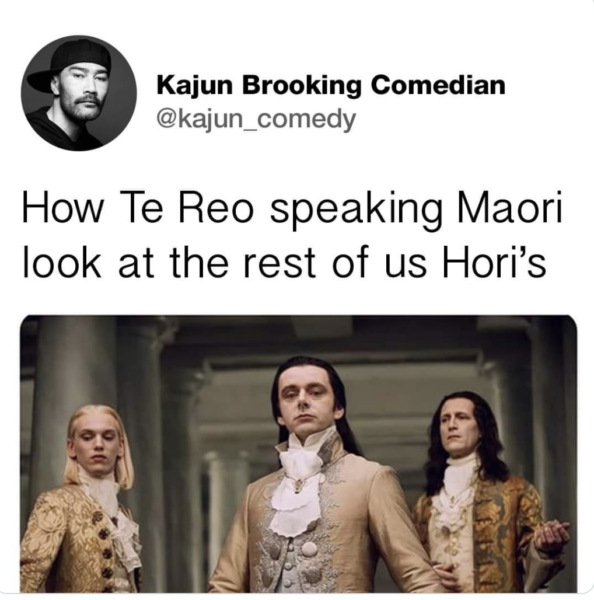
…he was surprised by the popularity of it…
Comedian Kajun Brooking shocked by reaction to his Te Reo meme
A comedian has been shocked by the mixed response to a Te Reo meme he posted on social media.
Comedian Kajun Brooking posted the meme on Twitter at the beginning of July, which said: “How Te Reo speaking Maori look at the rest of us Hori’s”.
Brooking said the idea for the meme came after an interaction with a woman who asked him for help in Māori. When he told the woman he couldn’t speak the language, “she actually looked quite disappointed in me”.
…we shouldn’t allow woke identity politics elitism to shame us or bully us, that’s misusing the gift that is Te Reo.
If you don’t speak Māori and you don’t want to, that’s ok, you aren’t a bad person!
But equally, just because you don’t understand what is being said, your slight inconvenience doesn’t justify the cross burning racism that gets voimited up the nanosecond you don’t understand what is being communicated!
Sometimes inconveniencing the majority is good for that majority.
As you wait for the caption to explain what is being said, you might also think this is how hard of hearing and the deal feel all the time, which is why captioning should be funded for all media!
That moment where you don’t understand can be a learning and teaching moment of empathy.
That’s a good thing.
Honestly, if you are such a cracker honky that seeing te reo signs spins you out, you need a large cannabis cigarette to chill the fuck out.
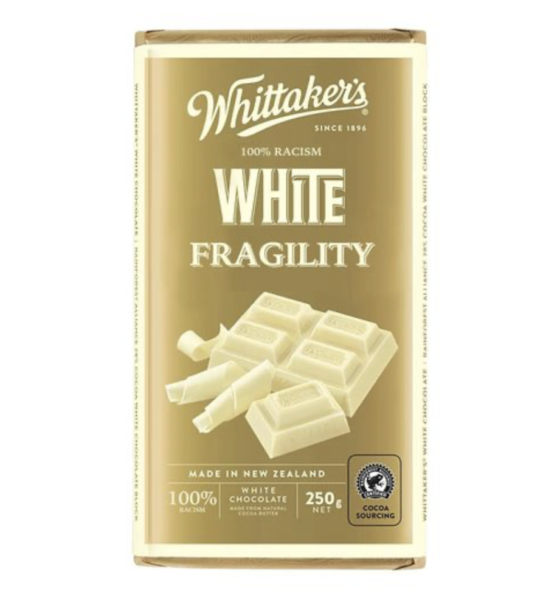
Equally we shouldn’t allow the Professional Managerial Class’s use of Te Reo as a virtue signal to masquerade their failures when 22 000 are on emergency housing wait lists, when 200 000 kids are in poverty and when there are more children living in cars than when Labour began in 2017!
Speaking Māori fluently doesn’t solve any of those problems!
As for Simeon Bown, his petty fears and petty mindedness is all beneath our collective mana. Let us denounce such dog whistling tactics by National for what they are, the song of ignorance set to a waltz of resentment.
Increasingly having independent opinion in a mainstream media environment which mostly echo one another has become more important than ever, so if you value having an independent voice – please donate here.
If you can’t contribute but want to help, please always feel free to share our blogs on social media

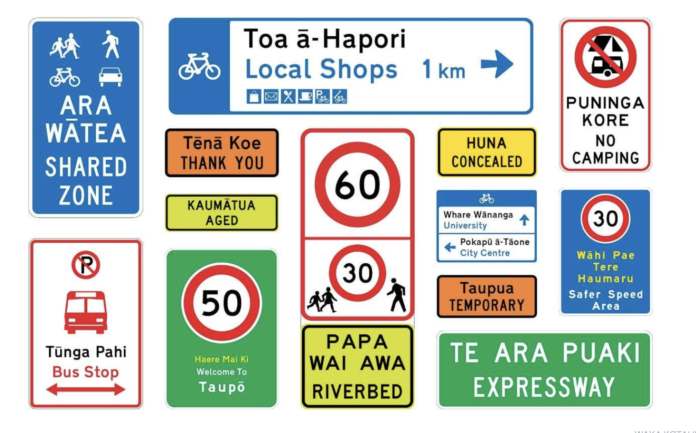
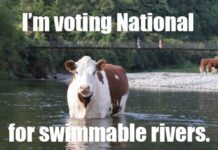

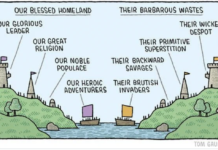
National are supposed to be the government in waiting but they’re so thick, they fucked up this gimme thrown to them by Labour. No wonder they’re marooned in the mid 30’s!
Road signs need to convey a stark simple message immediately. They must have as few letters on them as humanly possible or there is NO point even bothering. Road signs and political correctness do not mix! That is all National had to say. Common sense!
Now public servants in Wellington have found the keys to the promised land by speaking pidgin Te Reo or English, (RNZ, I’m looking at you), take your pick, and Waka Kotahe heads that charge and they could not resist the temptation to get in good with the bosses. Can’t fix potholes, manage projects or a piss up in a brewery, nor leave it to drivers to know when to cross the harbour bridge but woke Te Reo they do know. And apparently they want to keep an us “safe” from the boogie man. So what the fuck is safe about turning road signs into woke billboards? What?
National should rename themselves the Jandal Party as their flip flops are all they’re known for nowadays! I’m struggling to think who is more reprehensible, National or Labour!
And that’s why we have ACT.
Your second paragraph nails it perfectly XRAY. The idiot Nats have managed to make it look a race issue, when it’s really about safety.
The obviousness of bilingual road signs is it’s not designed by engineers.
There’s no straight line cultural sensitivity. Take Maori place names will we have to print pakeha names as well?
This is a massive distraction underlining the fact that we’re not very good at building roads in the first place.
Sam The Romans knew how to do it, could even accommodate elephants, so there’s no excuse for Wellington’s hopeless blunderings.
Civil engineering is seen as the poor man’s path to success. I just wish engineers could convert there intelligence status into attracting the opposite sex.
So 96% of people cannot read these new signs, and the overall effect is to make the typeface smaller and harder to read.
If anyone thinks this nationalistic posturing actually improves anybody’s life, do explain to me how. And I say this as someone who supported setting up indigenous language departments, and continues to call for all 500 Aboriginal & Torres Strait languages to be taught by (local area) university literature departments.
It is the smaller typeface required to fit two versions of the same text that is the big practical difficulty.
The size and type of typeface used for road signs now is the result of lots of experience and testing.
It is primarily a safety issue. Very few people speak or read Te Reo on a global scale, and we can safely assume no international visitors do. This will be seen as unwelcoming to foreign visitors, and may well lead to traffic accidents and other safety issues as drivers who cannot understand Te Reo struggle to comprehend the road signs. As a country boy I find Auckland (for example) difficult enough to get around in as it is, not knowing the geography or road layout. Confuse the roadsigns and it is a lot worse.
I have full expectation that right now some woke fool is pushing for road signs in sign language as well.
I agree with you.
Many will find it distracting. Especially our visitors from overseas.
Running dual signage on toilets and other public and private infrastructure makes sense. That is the way in which I have picked up some words. The use of dual sign should be encouraged but safety first.
Ben Waimata Yes, of course it’s a safety issue, but government departments pumping out bilingual alternatives do not care about basic issues like safety. They only care about showing how woke and how “ non-racist” they are. This is the ‘Look at me’ generation who are running everything now.
Wellington City Council is another good case in point, aiming to have Wellington a Te Reo speaking town by 2030, and already wonderfully LGBTQ friendly, with rainbow crossings, street lights failing, footpaths spouting geysers, a ghost city emptying, while residents burn to death in a lodge fire which hadn’t had a safety inspection for years. The roadside a few metres from here has a pothole by the curb where sooner or later a parking car will wreck a tyre or an axle. Civil servant types walk past it daily, and rubbish trucks visit, and the street cleaners come to brush cans and plastic bottles into the storm water drains, while that hole widens every time it rains; I suspect that unless I phone the council, nothing will get done. It took weeks and three phone calls and robust discussions with the council call centre about the last fresh water leakage before they rustled up some sort of a fix.
How the hell bilingual signage will actually enhance road safety is something which they need to explain.
I agree with Martyn. The English name should be on top because that’s what we read first. Try finding your way around the hospitals, you have to decipher long Maori names before you get to the English one. It makes me feel dyslectic, but I’m just a silly old racist white person.
I had that experience late at night in a family crisis. Wondering around in the dark, not very many people around, struggling to remember the Māori name I d been given at ED. Stressed because I was trying to see a very sick relative
The left is overlooking the subtlety of the National party playbook. Martyn Bradbury has fallen for it line hook and sinker by alluding to racism. If you say anything nugatory in regards Maori you are a racist.
National realises that we have hit peak Maori and that a majority of people are fed up with this meaningless woke Maoriness.
So call them racist, they don’t care anymore. Pander to Maori all you like but those insatiable demands will stir up reactions even worse than racism. That is indifference. People will simply stop caring about Maori wokeness.
And that does nothing to drag Maori into New Zealand inclusive, multicultural and democratic society.
@Gerrit
Wokeness and māori are not the same thing. The majority of woke virtue signalling is using māori people, language and culture as leverage, a political and social football for cultural elitists, most of whom are pākehā.
Sure a few māori are fully onboard, but fast forward the current neoliberal woke project a few decades and I don’t think you will find the well-being of the vast majority of māori will have changed one bit.
Having said that I don’t have a problem with bilingual road signs, it’s not a new phenomenon globally. The current design language distinctions could be improved and be more consistent to help people focus, at a glance, on one language and ignore the other.
I do not see a problem with the signs in both languages but I do see a problem in money being diverted from core business such as fixing potholes and bad road design.
Well another way to save a f’ing fortune would be to paint arrows telling you which side of the road to be on rather than the fortifications they build with a stupid little arrow on top. They are designed to be hit by cars it seems, and just take the piss out of common sense.
Agree .In Chch we have a barrier on a local straight road. I drive it most days and have never seen an accident over the last 30 years .The wire barrier is down the middle of the door and both sides of the road a complete waste of time and money
Those wires are deadly to motorcyclists who slide into them. We have seen cars that have hit them so they do serve some purpose.
Kei te whakapau kaha te whakamāori i ngā tohu ara kotahi whai kupu i te reo Pākehā me te reo Māori mō Aotearoa i te whāinga whakahirahira o Aotearoa.
1. Whakamanatanga: Ka whakapau kaha te whakamāori i ngā tohu ara i te reo Māori ki te whakamanatia i te tikanga, te ahurea, me te reo o te iwi Māori. Ka whakapaukaha i te whakatutukitanga o te Tiriti o Waitangi, whakamana i te ahurea Māori, me te whakapau kaha i te whakapono, te whakararuraru me te whakawhanaungatanga.
2. Whakararuraru: Ka whakapau kaha te whakamāori i ngā tohu ara i te reo Māori ki te whakapaukaha i te māramatanga o te reo Māori i waenga i te iwi whānui. Ka whakatutuki i te whakawhanaungatanga i waenga i ngā iwi, me te whakapiki i te whakapono, te whakakaha i te whakapaukaha me te whakapaukaha whakahaere i waenga i ngā iwi whānui.
3. Whakapaukaha Ahumahi: Ka whakapaukaha te whakamāori i ngā tohu ara i te reo Māori ki te whakapaukaha i te pakihi, te tāone, me te whakapaukaha ahumahi. Ka whakamana i te whakawhanaungatanga pakihi i waenga i ngā iwi, ka whakapiki i te whakapaukaha o te ahumahi, me te whakapaukaha i te whakawhanaungatanga ā-hapori.
4. Whakapaukaha Whanaketanga: Ka whakapaukaha te whakamāori i ngā tohu ara i te reo Māori ki te whakapaukaha i te whanaketanga tūmatanui me te whanaketanga reo. Ka whakapiki i te māramatanga o te reo Māori, te whakapaukaha i te mōhio, te whakapiki i te whakapono, me te whakapaukaha i te whanaketanga reo ki waenga i te iwi whānui.
5. Whakatutukitanga Ture: Ka whakapaukaha te whakamāori i ngā tohu ara i te reo Māori ki te whakatutuki i ngā tikanga ture, i ngā whakaritenga whānui hoki. Ka whakapiki i te whakapono, te whak
How are you going to fit all that on a road sign?
Translation:
1. Give way
2. Pedestrians ahead
3. One way only
4. Stop
5. No entry
Kraut. Nope. You should have gone to night school.
(1 No exit
(2) Beware children
(3) Speed up
(4) Lycra free zone
(5) The end is nigh.
The translation of English and Māori single-track signs for New Zealand is an important goal of New Zealand.
1. Validation: Efforts are made to translate road signs into the Māori language in order to validate the culture, culture and language of the Māori people. We will work hard to achieve the Treaty of Waitangi, uphold Māori culture, and work hard on faith, conflict and relationships.
2. Problem: Translating road signs into te reo Māori will make an effort to improve the understanding of te reo Māori among the general public. It will achieve inter-ethnic relations, and increase faith, strengthen commitment and administrative effort among the general population.
3. Industrial Effort: The translation of signs into the Māori language will make efforts for business, urban, and industrial efforts. It empowers business relations between nations, increases industrial efficiency, and strengthens social relations.
4. Development Efforts: The translation of the signs into the Māori language will make an effort to contribute to public development and language development. It will increase the understanding of te reo Māori, increase knowledge, increase faith, and increase language development among the general public.
5. Legal Compliance: We strive to translate signs into the Māori language to meet legal requirements and general requirements. Increases faith, faith
thank fuck for google translate and all those years spent out of NZ!!!!!!!
He nui ngā take e whaihua ana te whakamahi i te reo Māori hei āwhina i te whakapā. Ka whakapau kaha i te whakawhanaungatanga, te māramatanga, te whakapono, me te whakawhitiwhiti i waenga i ngā iwi, hapori, me te whakahaere i ngā mahi whakawhitiwhiti kōrero ki te iwi whānui.
Ka whakapau kaha i te whakapono me te whakamana i te tikanga, te ahurea, me te reo o te iwi Māori. Ka whakapiki i te whakawhanaungatanga whānui, te tūmanako me te whakapaukaha i te ahurea kotahi o Aotearoa.
He whakamahi i te reo Māori hei āwhina i te whakapā, he whakapiki i te whakawhanaungatanga ā-tangata, he whakapiki i te māramatanga, te whakapiki i te whakapono me te whakapaukaha i te ahurea o te iwi.
Exactly.
Yes exactly.
Tena koa whakaae mai koutou katoa. He mea nui nga pukenga korero pai, titiro noa ki te tawhiti i kawea e ratou a Ardern, tae noa ki Harvard.
I agree.
Funny thing is it was the evil white man who turned maori into a written language> of course they had to use english letters as maori had no letters of their own.
Or motorcars
Thanks for translation Shona. Well if that defines important goals for NZ then we’re truly fucked. I would have thought making us more productive as a country would be an important goal…like a profitable oil and gas industry. And nuclear power. And 4 lane motorways north to south. And a world class education system. But maori road signs an important go? Oh boy we are on our way down…
I don’t think it is a priority getting the Maori Language on Road Signage, I would prefer the pot holes fixed first, but haven’t National and Winston at Winston First got their knickers in a twist about it.
So let’s keep fixing the signs….
That comedians meme is bang on the money.
Honestly pushing for costly Te Reo signage right now, when people are really doing it hard and it is obvious that Government is struggling to even maintain out basic health system, well it just comes across as a “let them eat cake” moment.
Weapoising Te Reo helps no one and instead just creates more issues
Own goal by Labour
only replacing worn out signs you won’t see armies of workies clutching the new signs on monday morning chocolate
yeh thats what you think! Do you really think the activists are just going to wait for a sign to become worm out and need replacing
were you born yesterday?
I went to a talk last night. An almost retired headmaster – many degrees in teaching and had studied teaching methods from all over the world. She showed us what she described as the garbage now being produced and read some from one of MOE curriculum books for maths. Something like ‘This is power. This is about inclusion. We accept that all texts are written by people and therefore are unreliable.’
She said she chucks it in the bin and they teach like they used to. And her schools have some of the best results in the country.
She said they have one student that is mostly truant. The MOE expects them to sue the parents.
She’s loved by the students. She is one of the last from the old generation.
So it’s not really about road signs is it. It’s about all our energies going to the wrong places. About not being able to say anything or you’ll face wrath and fury. The waste.
Just another brick in the wall.
Thank god. If I had school aged kids I would send them to that school
Where are these schools?
It’’s the trustworthy honest objective unbiased media driving most of this, ambushing pollies with dopey questions to score brownie points as smart Alecs and Alices, running the narrative, and avoiding the serious issues.
Next they’ll be wanting signage in Arabic as an exercise in empathy and togetherness with our Muslim whanau, Chinese, as an exercise in reality, Gaelic, as compensation for inflicting hooligan Trevor on Eire, Braille, because they’re touchy-feely, blank spaces to provide freedom of choice, and gender neutral to avoid getting beaten up by blokes in frocks.
The big issue is road safety, but the government transport agency has lost sight of that, as usual.
Well, it’s working innit?
The dumb left has fallen for it!
Triggered by it so much that you give it ‘airtime!’ ffs!
How to get suckered into a nonse argument!
Throw the dipshit leftie retards a bone!
Go Fetch fuckwits! Fetch!
Roads in New Zealand are in very sorry state and should therefore have precedence to finance.
Spending vast amounts of money on signs is irresponsible.
Irresponsible spending on roading by National( cheapest contracts on bitumen) has lead to the worst roading in NZ’s history. The previous National party undoubtedly the worst government in history.
I’m not racist in any way but common sense is missing here. Put an important sign up on the side of the road in an unfamiliar area and then drive passed it at 100kph with a car in front, behind and a truck oncoming. Try doing it at night also. You haven’t got time for a Te Reo lesson. If Te Reo is on the sign which I have no problem with, put it under the English language most Kiwi’s speak and understand so that needs to be the one they have a split second to read. Our roads are already a minefield without adding to that.
Thinking man that’s a weak excuse given many NZers travel widely now how do they manage when signage is not in English, give us a break they look at the fucken picture. Now what’s that saying about a picture being million words.
I remember in the day in Auckland bilingual sign in Japanese in the day when Japanese people toured around the world. So important were these people that on a visit to the Auckland museum where my children wanted to buy a small trinket they were completely ignored by the shop keeper because a bus load of tourists were flocking in and of course they were more important than my 2 smallish children. Why are we even having this conversation surely it a natural progression of understanding and being proud of who we are and what we want to become as a country. Wales has had bilingual signs for many years and a resurgence in the Welsh language. Many “uncles “ ( thank you Chris Trotter ) bemoan the state of this country .When as a country we should be embracing such initiatives which will surely take us forward towards a greater understanding of each other. I despair that our country is even having this petty conversation, it’s actually called “knit picking). Be brave be strong and surely “ te rheo” is more important than other languages on signs in Aotearoha .
90% of resident Welsh people speak Welsh on a daily basis. 5% or less of the population in NZ speaks Te Reo.Bit of an own goal there Queeny.
I have spent most of my life living amongst Nga Puhi. And I have experienced racism almost daily for most of that time.
90% you say Shona oh how I wish it was 90% considering Wales is made up of mainly English speaking Welsh and English people Yes there is a resurgence in Welsh with schools and tv radio programmes etc, not sure where you got that figure from. The bilingual road signs came before the resurgence. Latest stats from 2021 is 29.5% a long way from your 90% . A bit of sarcasm there Shona based on a misleading premise. I actually come from a welsh speaking family so I do have a little bit of knowledge on the subject.
Kohanga reo language nests are modeled on the Welsh system which has been operating since the 1960’s. All schools in Wales are bilingual as are their road signs.And yes I have been there.
Sorry Shona not all schools in Wales are bilingual, yes welsh is taught as a subject which is totally different to immersion.There are full Welsh immersion schools in Wales but the majority are English speaking . I am not sure where you are getting your information from but sorry its not a very reliable source.
i am sure bilingual signs will fix this in no time…..
https://www.nzherald.co.nz/northern-advocate/news/far-north-residents-undertake-diy-road-repairs-as-bus-driver-refuses-to-drive-on-disintegrating-roads/XA4OIDODBZDA5BRAI5JL7RBHYU/
thanks bratty. constant reality up here.
Simeon Browns’ new name is Woof Woof
What will his name be when he goes from puppy to adult dog?
Minister.
He’d need a change of nappies and 30+ years for that to ever happen.
to the gainsayers fuck off and tell the canadians or the welsh it doesn’t work
Ignored mainly in Quebec.
but the signs exist indeed many commercial businesses see the advantage. boulangere eclipses bakery if only in snob value…it’s worked well in wales and has existed for many years
Just out of interest I thought NZ was conforming to internal roading signs for international purposes.
That way tourists don’t kill more innocent people on the road?
Roading engineer: “What is that?”
Fu.. safety!
actually, I am bloody well against the bi lingual road signs. Theses signs need to be kept simple and clear in a language we all understand.
What is the point of the bi lingual road signs?
Why doesn’t TDB start having headlines in Maori first then English then?
Or even better the whole article in Maori before in English?
Martyn’s gun control views would be less offensive if they were written in Maori.
In the interests of readability, the English version should be larger & on top. Otherwise the first thing you read, for most people makes no sense and so you stop reading. There is also the possibility that people will assume the first word is a proper noun or place name, leading to further confusion.
https://breakingviewsnz.blogspot.com/2022/09/graham-adams-are-pakeha-really-bad-guys.html
worth a read and why so few of us bother with Te Reo.
I hate it when Martyn is on his meds because he writes something I agree with. National own goal about a non topic when the elitists of wellington force patronising use of the odd Maori word into every second sentence to look good.
This is a cross-post, but here it is.
I’m not normally one to defend the Nats but the research that NZTA has done (or rather the review of other people’s research) is actually quite alarming.
https://www.nzta.govt.nz/assets/resources/research/research-notes/005/005-bilingual-traffic-signage.pdf
Table 2.2 is an eye-opener: there is at least some evidence that bilingual signs are negatively associated with signage comprehension time, following distance, driving acceleration and driving speed.
And I think the authors of this piece make an important point:
“Proponents of bilingual signage can proactively address these safety implications as an effective strategy for addressing legitimate fears among road users for whom cultural factors are not so acute.”
I honestly cannot believe I am saying this, but safety is a factor and giving Simeon Brown shit for saying so is the opposite of “proactively address these safety implications”.
My brief read of this piece suggest that a good strategy for safety is to simply put the English names at the top.
Whatever the eventual strategy, screaming “racist” at people with legitimate and evidence-based safety concerns is a shit strategy, especially when many of those people are probably like me: we want Te Reo signs, but done right.
I have a question: how do individual iwi ie iwi in varying locations around the motu, feel about the construction of the terms used on what were simple road signs? how do the elders, the kuia and kaumatua, feel about the translations of the driving terms and directions? As we have seen at Waitangi, elders, both kuia and kaumatua, are bullied into silence by woke police/stewards with scant regard for the dignity or thoughts of these elders who should be respected and listened to instead of barging ahead with the ‘agenda’.
I personally think the bilingual signs are cool but on attempting to translate their actual meaning really got that puzzled, cross eyed look which does not equate to safe driving, at all.
My other question is, when Andrew Coster & co engage in dangerous high speed chase manoeuvres in their new Ladas and their HSV’s can the sirens be tuned to the more melodious tones of a koauau for a more inclusive experience? asking for a friend~
Comments are closed.